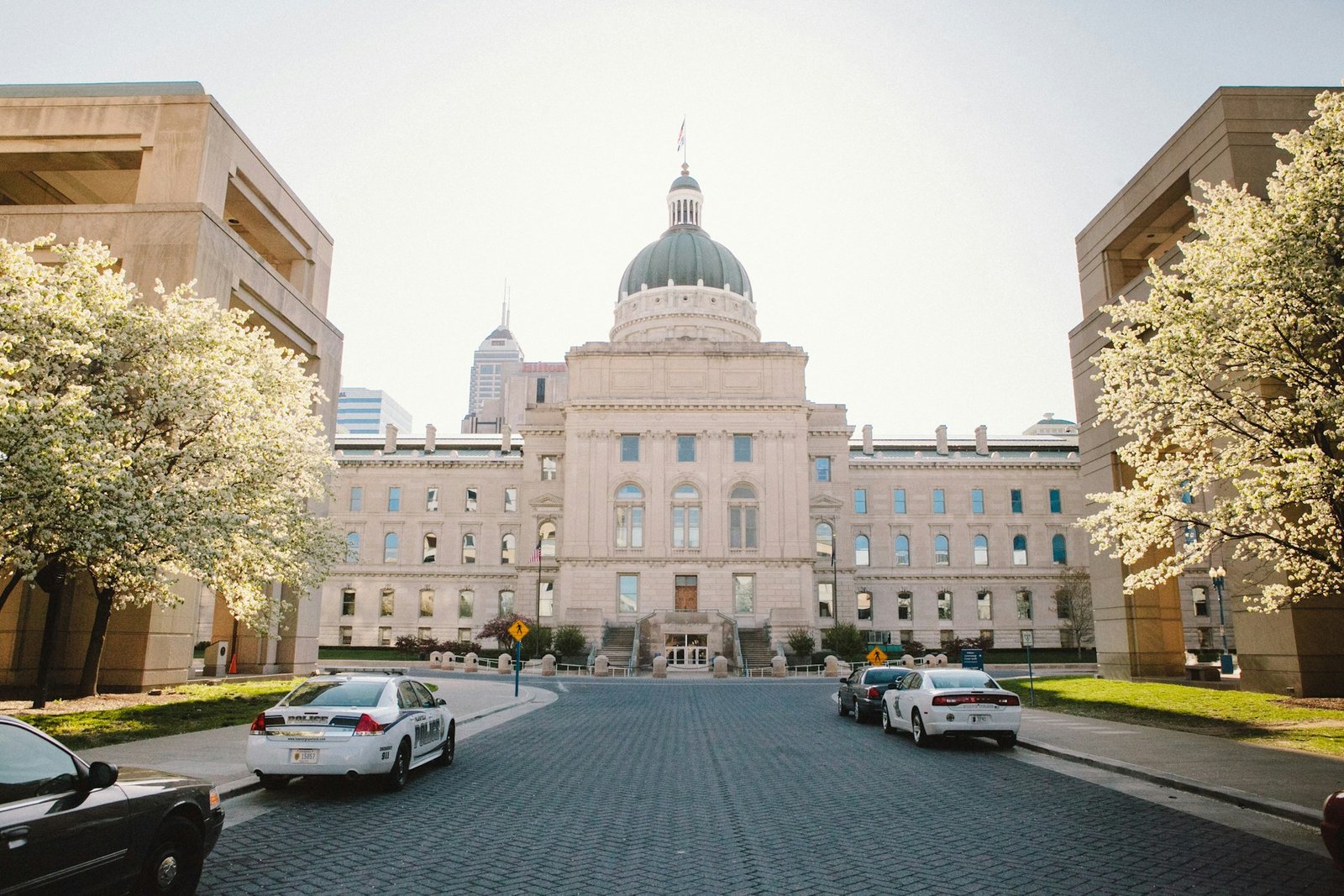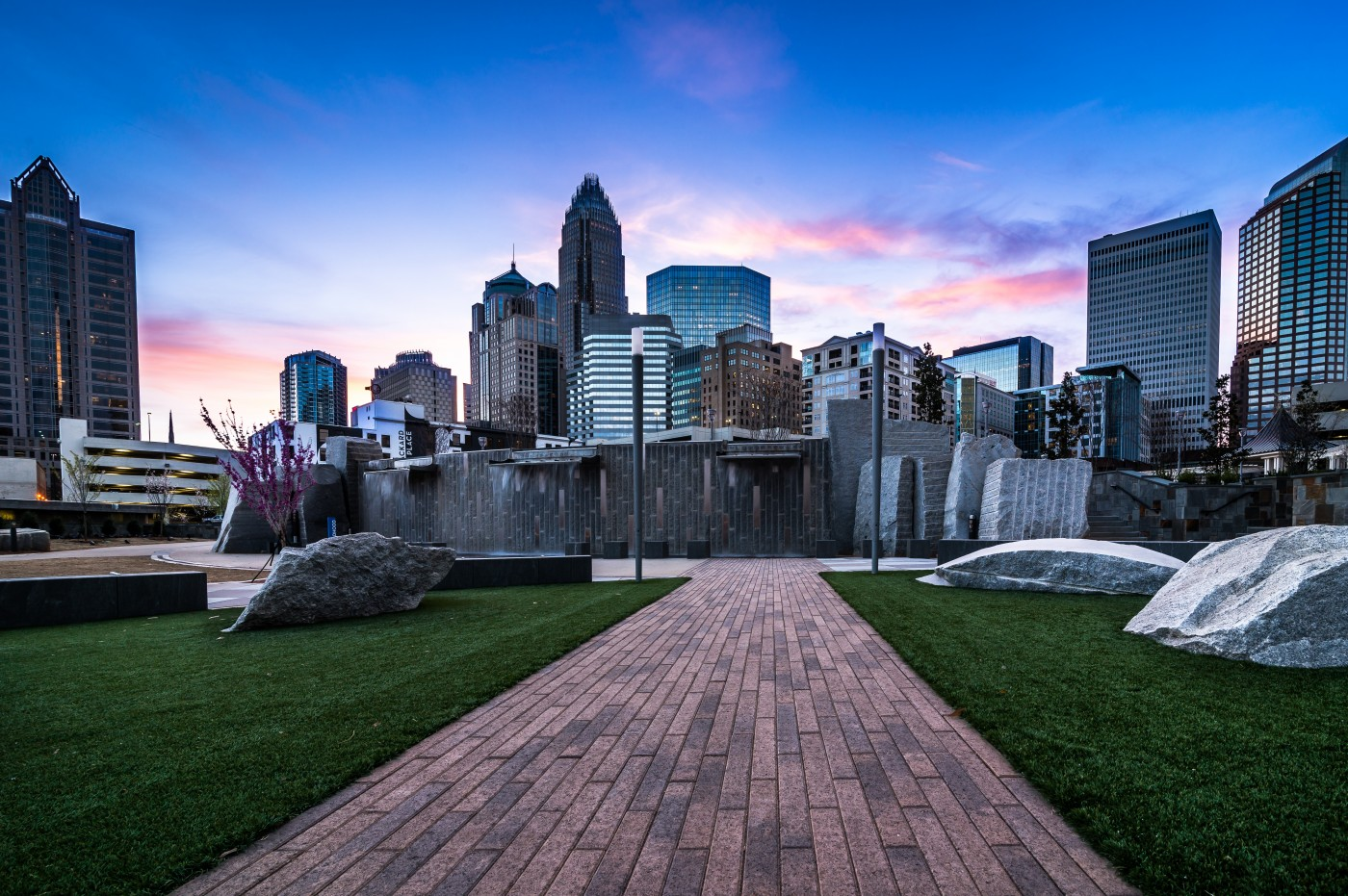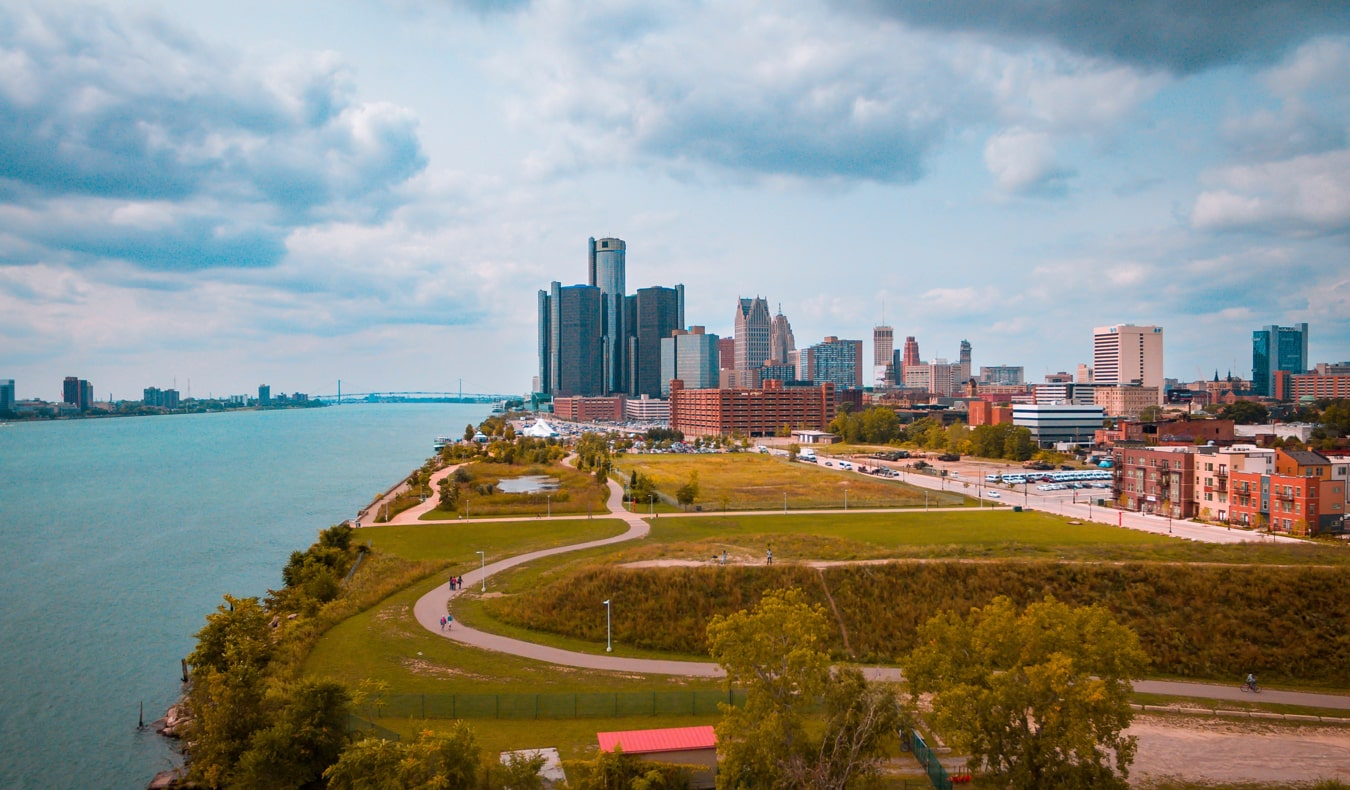Exploring the Great Outdoors in Jacksonville – The City’s Mesmerizing Parks
Known for its vibrant downtown and Atlantic coast beaches, Jacksonville also boasts a wealth of verdant parks for outdoor escapes. Over 337 public parks blanket the city, offering up over 21,000 acres of land and waterways to explore.
| Park | Key Features |
|---|---|
| Timucuan Ecological and Historic Preserve | Expansive natural area with historical sites and diverse ecosystems. |
| Hanna Park | Oceanfront camping, surfing, and family-friendly amenities. |
| Big Talbot Island State Park | Natural beaches, trails, and birdwatching opportunities. |
| Downtown Jacksonville Parks | Urban green spaces with historical and scenic attractions. |
| Jacksonville Arboretum & Gardens | Themed gardens and educational exhibits amid natural settings. |
| Walter Jones Historical Park | Historical site with scenic trails through natural habitats. |
| Huguenot Memorial Park | Beach access, camping, and recreational activities. |
| Castaway Island Preserve | Kayaking and nature trails in a marsh ecosystem. |
| Boone Park & Boone Boulevard | River views and scenic strolls along the St. Johns River. |
| Tillie K. Fowler Regional Park | Family-friendly park with lakes, playgrounds, and picnic areas. |
| Fort Caroline National Memorial | Historical fort with nature trails and educational exhibits. |
From historic downtown squares to wildlife-filled preserves, Jacksonville’s gorgeous parks brim with stunning scenery. Keep reading to discover the top park destinations this spectacular city has to offer.
Timucuan Ecological and Historic Preserve – Wetlands, History, and Trails Galore
Name and Location: The Timucuan Ecological and Historic Preserve encompasses 46,000 acres along the St. Johns River northeast of downtown Jacksonville, with access points and visitor centers across multiple locations.
History and Significance: Established to protect wetlands and wildlife while interpreting rich cultural resources, the preserve features historic plantation sites, Kingsley Plantation, scenic marshes, beaches, Fort Caroline memorial, and an extensive network of trails showcasing the region’s ecological diversity.
What to Expect: Visitors hike, bike, paddle, attend ranger programs, go fishing, wildlife viewing, boating, swimming, observe agricultural history exhibits, and explore museums and nature centers while spotting herons, eagles, dolphins and other wildlife across richly diverse ecosystems from coasts to swamps.
Visitor Information: The preserve is open daily with free entry. Some sites have fees. Beach and water access varies. Some areas close at dusk. Visitor centers provide maps and orientation.
Encompassing over 46,000 acres, the Timucuan Ecological and Historic Preserve provides visitors a window to the unspoiled Florida of centuries past. The park’s entirety spans swampy wetlands, lush forests, riparian habitats, and even a portion of the Atlantic coastline. Kayakers and canoers delight in the park’s meandering water trails, while hikers traverse trails crossing over 40 miles through vibrant ecosystems. History enthusiasts will marvel at Fort Caroline National Memorial or Kingsley Plantation, reminding visitors of Jacksonville’s rich human history. With boat launches, nature centers, campgrounds and ample trails, Timucuan Preserve proves an outdoor lover’s dream.
Hanna Park – Coastal Beauty with Abundant Recreation
Name and Location: Hanna Park occupies 500 acres at 500 Wonderwood Dr. where the Atlantic Ocean and Intracoastal Waterway meet north of Jacksonville Beaches.
History and Significance: Once a potato farm, Hanna Park today protects vital coastal habitats including dune ecosystems, maritime forests, saltwater marshes, tidal zones and freshwater wetlands across extensive recreational amenities for visitors to enjoy nature.
What to Expect: Miles of scenic trails for hiking and mountain biking wind amid rare ecosystems and archaeological sites. Camping, fishing, kayaking, surfing, wildlife viewing and swimming on two scenic beaches connecting visitors to the Northern Florida coast.
Visitor Information: Hanna Park is open daily 8 AM to sundown. Entry fees $3-5. Campsites, surf lessons, kayak rentals available seasonally for a fee. Some areas may close for eco-protection.
Offering oceanfront camping mere steps from the sea, Kathryn Abbey Hanna Park charms visitors with its blend of natural beauty, surfing, and family-friendly facilities. 60 acres of maritime forest laced with hiking and biking paths provide shady inland trails to explore. Meanwhile three separate beach areas along the Atlantic cater to surfers with reliable waves, swimmers splashing in the gentle surf, and families picnicking on the sand. Amenities include campsites, playgrounds, an interpretive center, and wheel-chair beach access. Hanna Park’s stunning landscape and wealth of outdoor recreation easily cement its spot among Jacksonville’s treasures.
Big Talbot Island State Park – Gorgeous Shores, Marshes, and Trails
Name and Location: Big Talbot Island State Park spans over 5 miles of shoreline at 11250 Big Talbot Island Rd northeast of Jacksonville and the Intracoastal Waterway.
History and Significance: Preserving a picturesque undeveloped barrier island, Big Talbot encompasses maritime forests, coastal marshes, sandy beaches, tidal flats, diverse wildlife and rich history across over 9 miles of scenic nature trails ideal for escaping urban life.
What to Expect: Hikers, mountain bikers, paddlers, fishermen and nature lovers explore shores, marshes, trails and forests teeming with river otters, sea turtles, bald eagles, ghost crabs and coastal birds. Anglers cast off miles of surf fishing.
Visitor Information: The park is open 8 AM to sunset year-round. Entry fees $5 per vehicle. Primitive tent camping sites available. Some facilities are seasonally available or restricted during nesting seasons.
For true immersion in Jacksonville’s breathtaking coastal habitats, spend a day wandering Big Talbot Island State Park. Maritime forests, marshes, and five miles of gorgeous undeveloped beach allow visitors to experience Florida’s natural splendor firsthand. Nature trails weave across the island, exposing a diversity of plant and animal species. Shorebirds flock here during migrations while visitors comb beaches strewn with seashells and driftwood. Swim amid glittering waves, kayak through glistening saltwater rivers, or hike island trails while breathing deeply of crisp ocean air. Big Talbot Island State Park offers the best of Jacksonville’s coastal habitats in one awe-inspiring destination.
Downtown Jacksonville Parks – History and Scenery in the City Center
Name and Location: Jacksonville’s downtown parks encompass Northbank Riverwalk, Southbank Riverwalk, Main St. Park, James Weldon Johnson Park, Riverside Park and more spanning the St. Johns River’s banks.
History and Significance: Once industrial land, the park network’s creation revitalized downtown by bringing accessible green space, recreation and beauty protecting historic resources while spurring further urban renewal amid residential and commercial development.
What to Expect: Visitors stroll river walkways, attend events at outdoor venues, play in interactive fountains, appreciate public artworks, picnic in gardens, learn history through exhibits and take river taxi rides or water tours to explore downtown’s attractions.
Visitor Information: The parks are open daily with free entry. Some sections close overnight. Parking downtown and across the river accommodates access. Main St. Park has pay parking available.
Jacksonville’s numerous downtown parks allow locals and visitors to enjoy both history and scenery right in the city center. From fountains and monuments punctuating manicured lawns at Hemming Park to the towering sculptures and濷 verdant grounds of Veterans Memorial Park, Jacksonville offers downtown green spaces sure to inspire and fascinate. Other parks like Friendship Fountain Park provide city skyline views with spectacular waterfront fountains sending streams dancing in choreographed shows. For brief urban escapes, spend time strolling through the many public squares and riverfront parks embellishing Jacksonville’s dynamic downtown.
Jacksonville Arboretum & Gardens – Cultivated Nature at its Finest
Name and Location: Jacksonville Arboretum & Gardens occupies 14 acres at 1445 Millcoe Road within Walter Jones Historical Park stretching along the St. Johns River just north of downtown.
History and Significance: Grassroots volunteers transformed former industrial wasteland to create healing gardens, diversified tree collections, conservation wetlands,native ecosystems, educational programs and an outdoor classroom teaching visitors principles of ecological restoration.
What to Expect: Guests appreciate cultivated specialty gardens like rose, herb and wildflower displays across gently curving pathways. Nature tours, classes, facility rentals and community events occur regularly amid the flowering tranquility.
Visitor Information: The Arboretum is open daily 8 AM to sundown with free entry. Some areas require accompanying staff. Visitor orientation is provided at the entrance pavilion during posted hours.
For exquisite ornamental gardens set amid serene wooded wetlands, visit the Jacksonville Arboretum and Gardens’ cultivated landscapes. Meandering mulched pathways cut through 25 themed gardens overflowing with vibrant flowering plants. Covered boardwalks traverse cypress swamps, wet prairies, and ponds harboring wetland birds like egrets, herons and swallow-tailed kites. The arboretum also features educational exhibits and an interpretive center designed like an early 20th century boathouse. Wander through exotic cultivated gardens before venturing into wilder marsh habitats along the parks’ nature trails.
Walter Jones Historical Park – Scenic Trails and Historic Forest
Name and Location: Walter Jones Historical Park encompasses 297 acres flanking the St. Johns River near downtown Jacksonville at 11964 Mandarin Road, with some facilities found within the adjoining Losco Regional Park.
History and Significance: Protecting scenic wetlands, maritime forests, and pre-Civil War plantation ruins, the park offers recreation and event amenities while interpreting the region’s rich ecosystems, wildlife, Native American history and early settlement for public education.
What to Expect: Hikers, mountain bikers and horse riders enjoy over 6 miles of trails amid majestic scenery. Interpretive displays, camping, disc golf, community events and access to regional trail networks satiate most outdoor interests across diverse natural areas.
Visitor Information: The park opens at 8 AM daily, closing at sundown. Entry is free with some usage fees. e Park may restrict access to protect sensitive areas. Some amenities are seasonally available.
Listed on the National Register of Historic Places, Walter Jones Historical Park transports visitors back to Florida’s past amid 18th century buildings and artifacts. Beyond the interpretive history, the park shelters gorgeous scenery via nature trails winding through maritime forest and salt marsh habitats. Visitors can hike through oak hammocks draped in Spanish moss, traverse mangrove-bordered estuaries, observe shorebirds along the Intracoastal Waterway, and spot dolphins frolicking in the waterway’s harbor. Guests may camp within the beachfront park, kayak its tidal creeks, try their hand at fishing, or simply wander the trails while visualizing bygone eras.
Huguenot Memorial Park – Recreation, Fishing, and Scenic Shores
Name and Location: Huguenot Memorial Park occupies 253 scenic acres at 10980 Hecksher Drive where Fort George Island meets the Atlantic Ocean offering Jacksonville recreators diverse coastal habitats to explore.
History and Significance: Once a Native American village and early European settlement site later protected by Rockefeller heirs, today Huguenot Memorial Park balances public coastal access across a living history museum, lush nature, rugged shores, tidal pools, fishing and water sports.
What to Expect: Beachcombers, anglers, kayakers, windsurfers and swimmers enjoy therapeutic coastal views and activities amid three distinct ecosystems: ocean beach, intercoastal estuary and maritime hammock forest pierced by scenic hiking and biking trails.
Visitor Information: The park opens daily 8 AM until sundown. Entry fees $3-5 per vehicle. Annual passes available. Some areas may close for protection or events. Camping facilities extra fee.
Providing access to grassy inland meadows, coastal wetlands, and a beautiful Atlantic Ocean beach, Huguenot Memorial Park lures visitors with abundant recreational offerings amid gorgeous scenery. A large campground accommodates RVs while a sizeable day-park area services families looking for beach picnics and oceanfront playtime. Surfers ride waves breaking along the park’s northern border, and a fishing pier provides easy cast lines into reliably fishy waters. Over 100 acres of versatile grounds give tourists and locals alike room to wander and explore varied coastal habitats and views.
Castaway Island Preserve – Kayaking Jacksonville’s Water Trails
Name and Location: Castaway Island Preserve encompasses 509 acres across multiple islands within the Intracoastal Waterway north of Jacksonville accessible only by private boat or water taxi.
History and Significance: Protected to conserve vital coastal bird and marine habitats including shell middens indicating Native American settlements, today Castaway Island facilitates outdoor recreation while preserving the watershed environment and scenic views for public benefit.
What to Expect: Experienced kayakers and boaters discover secluded shores, observe abundant wildlife and cast lines for epic fishing accessed only via Jacksonville’s designated 31-mile water trail system coursing through the preserve’s island chain.
Visitor Information: Open daily from dawn to dusk for limited numbers of kayak/boaters at a time. No fees but requires private watercraft and skill to navigate currents. Picnic and wilderness camping allowed with permit.
Nestled within the Timucuan Ecological and Historic Preserve resides a standout destination for kayakers and canoers – Castaway Island Preserve. Salt marsh estuaries create a paddling paradise through the 325-acre ecosystem island, complete with a network of nature trails for those traveling on foot instead of boat. Flora and fauna abounds, with mangrove tunnels giving way to sunny glades dotted with cabbage palms. Egrets, herons, ibises and spoonbills frequent the marshy habitat along with river otters, deer and bobcats. Guests access the magical preserve solely by watercraft, only enhancing its aura of isolated wilderness despite its proximity to downtown Jacksonville.
Boone Park & Boone Boulevard – Scenic Strolls Along the St. Johns River
Name and Location: Boone Park and Boone Park South sit on opposite banks of the St. Johns River in downtown Jacksonville, connected by the scenic Northbank Riverwalk on the water’s south edge.
History and Significance: Preserving old growth trees and downtown riverfront access, these sister parks provide pedestrian pathways, artistic touches and lush scenery that contrast modern skyscrapers while framing iconic Jacksonville views along the Northbank.
What to Expect: Strollers, joggers and sightseers appreciate canopy shade, ornamental plantings, and photogenic skyline perspectives from the riverwalk promenades lining the waterway through the park corridor. People watching and river gazing never fail to entertain.
Visitor Information: The parks open daily with no entry fees. On-street metered parking and parking garages nearby provide easy access. The Southbank Riverwalk continues the trail on the other river bank.
Boone Park’s Riverwalk and waterfront lawns offer leisurely strolls with panoramic St. Johns River views. Visitors admire kayakers paddling the waterway’s smooth surface as shrimp boats putter amid glimmering city skyline views. Just across the street lies Boone Boulevard, a park drive lined with palms, pines and oaks overlooking even more stunning river vistas. Grab an artisanal coffee before meandering along the scenic roadway or wooded park trails. For gorgeous river views in an urban setting, Boone Park and Boulevard wow.
Tillie K. Fowler Regional Park – Lakes, Fields, and Family Fun
Name and Location: Tillie K. Fowler Regional Park encompasses 339 acres at 7000 Roosevelt Blvd, Jacksonville, FL, 32244 just west of the Trout River.
History and Significance: Dedicated in 2005 honoring the conservationist congresswoman, Tillie Fowler Park protects vital ecosystems, wetlands and waterways while providing community gathering space for recreation leagues, festivals and leisure activities across diverse amenities.
What to Expect: Families enjoy lakefront picnics, disc golf, RC airfield, skate park, batting cages, splash pad, playgrounds, athletic fields and courts, walking paths, event venues and scenic views from sunup to sundown daily.
Visitor Information: The park opens daily 8 AM until sundown. Entry and parking are free. Some amenities like the batting cages have usage fees. Shelters and sport facilities can be reserved.
Spread across 329 acres in Jacksonville’s Southside, Tillie K. Fowler Regional Park provides ample amenities for family gatherings and active outdoor recreation. Seven lakes scintillate amid the grounds, attracting abundant birdlife, turtles, and wildlife. Rowboats and kayaks available for rental allow easy exploration across glassy waters, while children delight in playgrounds and interactive fountains. Lakeside pavilions, walking paths encircling each lake, and sprawling event fields accommodate birthday parties, family reunions, company picnics and youth sports leagues. For fresh air fun suitable for all ages, visit Tillie Fowler Regional Park.
Fort Caroline National Memorial – Epic History and Scenic Marsh Trails
Name and Location: Fort Caroline National Memorial interprets the short-lived 16th century French colony on the St. Johns River within the Timucuan Preserve at 12713 Fort Caroline Rd, Jacksonville, FL 32225.
History and Significance: Established 1953 to mark Fort Caroline’s location, the Memorial tells the story of early European contact, power struggles between Spain and France and the cultures of native Timucuan peoples across a dramatic ribbon of coastal beauty 15 miles northeast of downtown Jacksonville along the waterway.
What to Expect: A reconstructed fort, exhibits, theater presentations, memorials, walking paths, boat ramp and towering trees immerse visitors into tumultuous history on heavily wooded banks bordering marshes, Intracoastal channels and the St. Johns while honoring indigenous peoples.
Visitor Information: The Memorial is open daily 9 AM-5 PM except major holidays. Entry fees $4-6. A one-mile loop trail explores the site. Picnicking facilities available. Regular ranger talks and Fort Caroline replica tours occur.
History reverberates across Fort Caroline National Memorial, where 16th century French and Spanish conflict played out along the St. Johns River. Today a replica fort and interpretive exhibits tell the story amid tranquil surroundings, with marsh trails and shaded picnic spots encouraging visitors to linger. Anney Branch Trail leads one mile through swaying sawgrass marsh habitats, where egrets, spoonbills, herons and ibises forage for fiddler crabs. Take in epic history lessons before wandering scenic levees and saltwater marshes for serene nature immersion.
No matter your preferred outdoor pursuit, Jacksonville’s vibrant parks offer activity paired with natural splendor. Wander manicured gardens, comb unspoiled beaches, cast fishing lines, paddle pristine waterways, hike lushly forested trails and absorb centuries of history. With emanate downtown green spaces and vast nature preserves, Jacksonville provides unlimited park adventure against backdrops of uncommon coastal beauty.





Join the Conversation